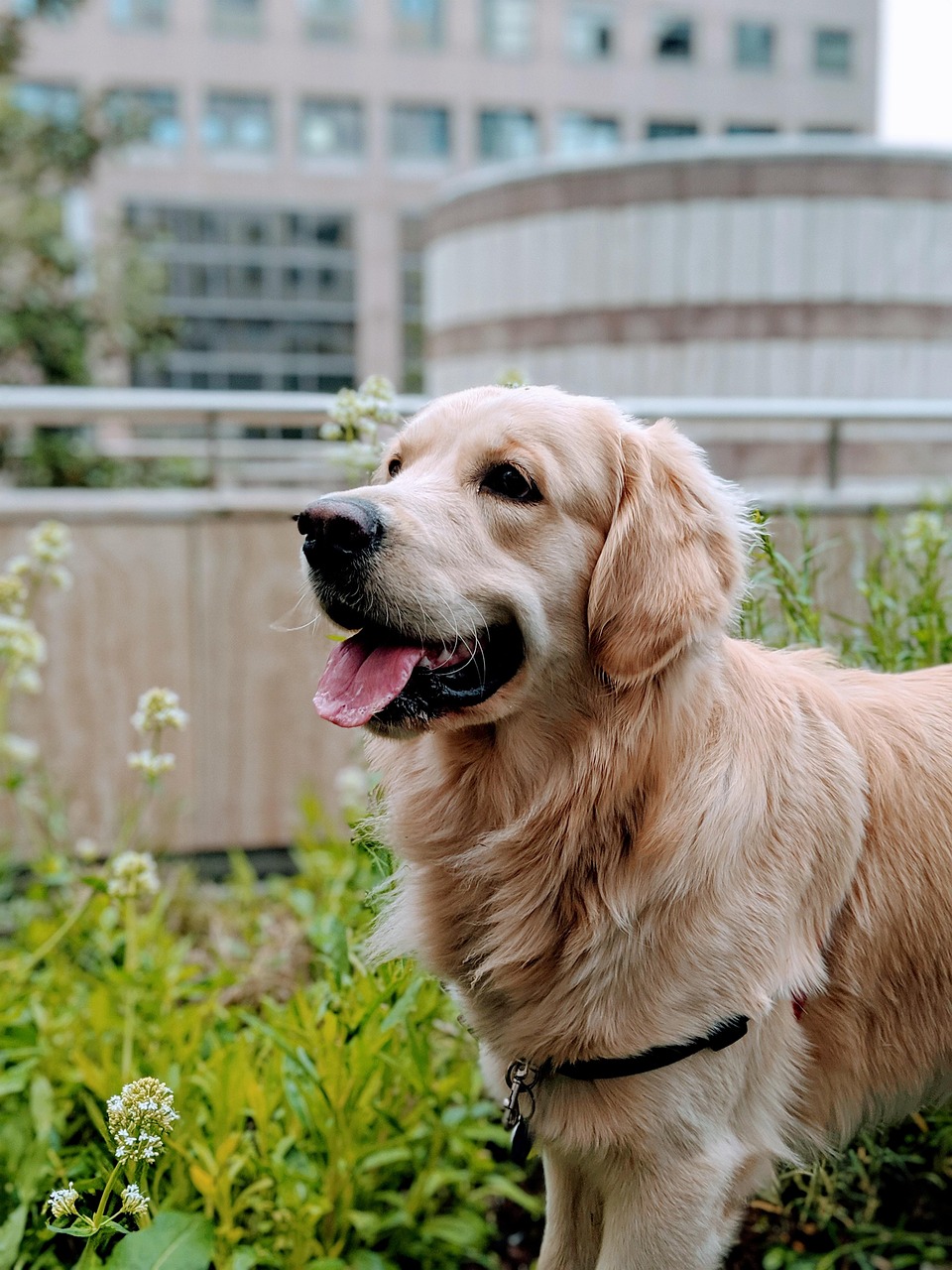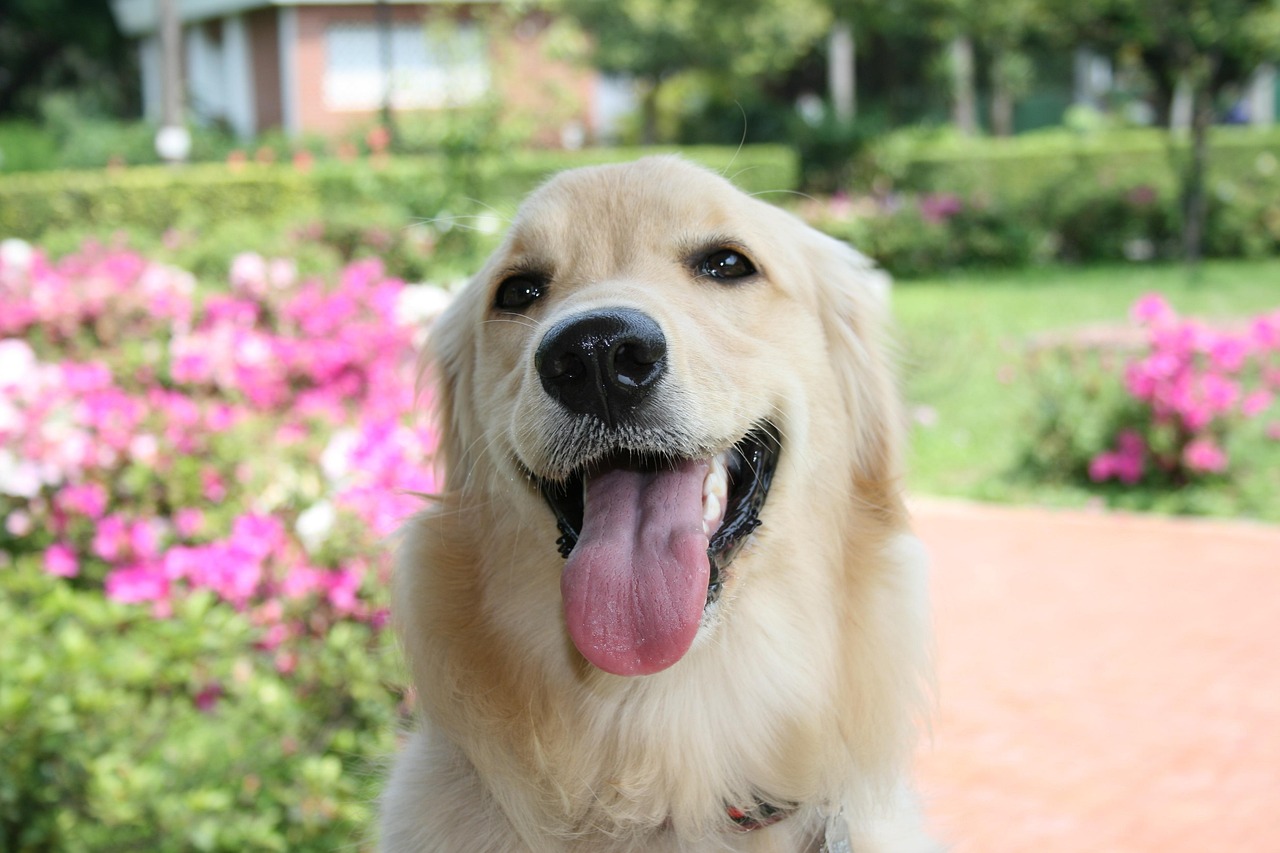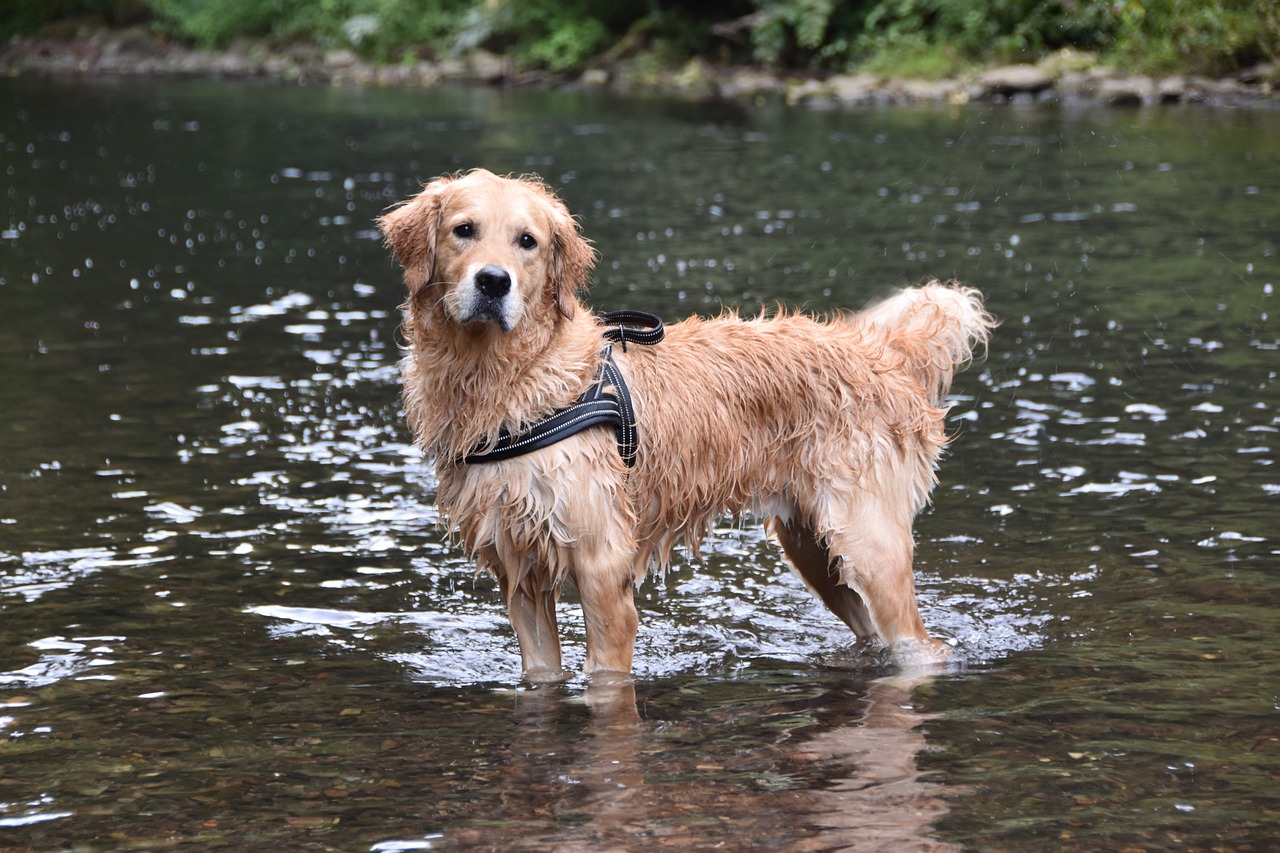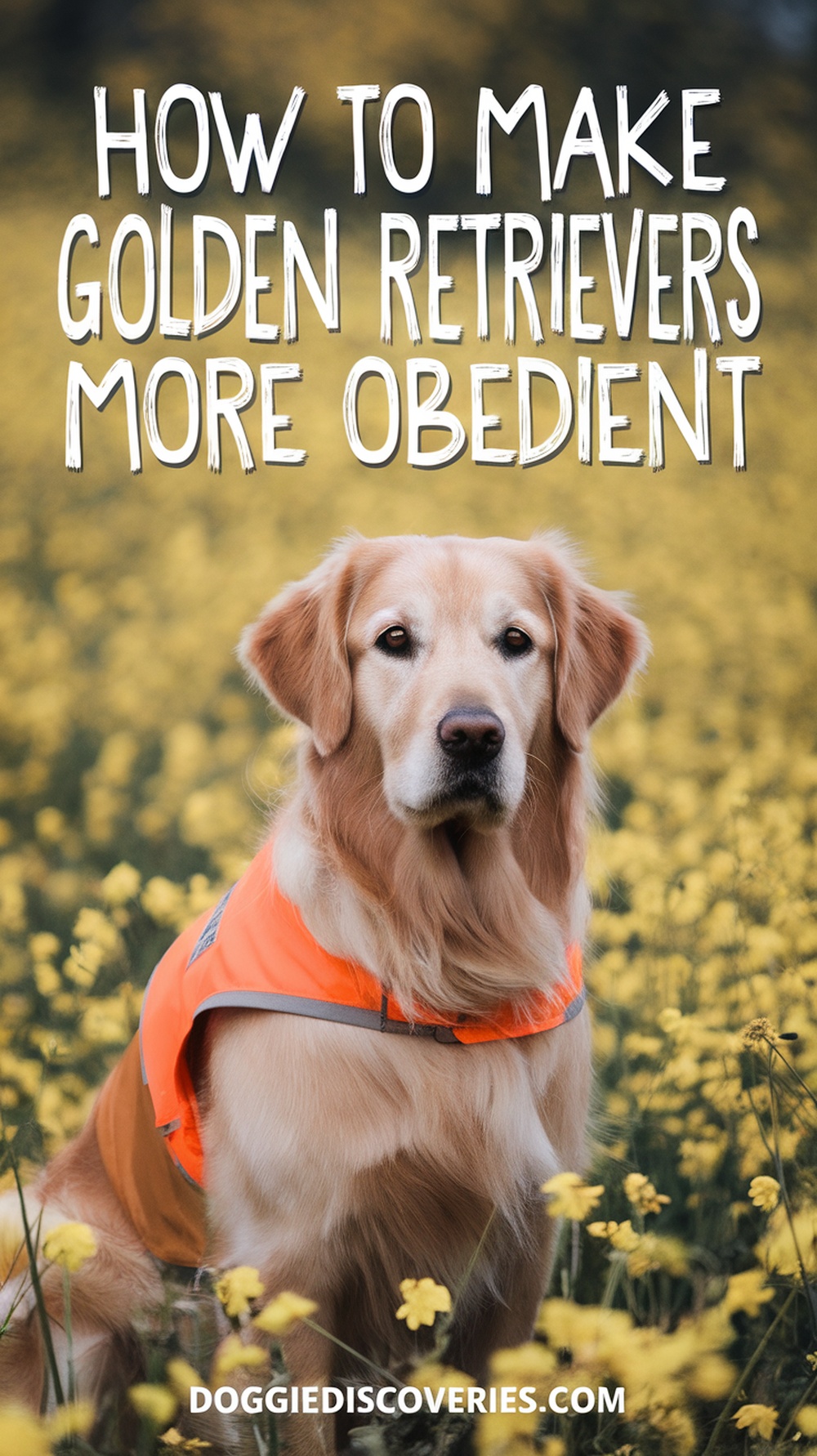Let’s be honest—Golden Retrievers are like that friend who’s so charming that you can’t stay mad at them, even when they steal your sandwich right off the table. They’re smart, loyal, and incredibly affectionate, but when it comes to obedience?
Well, let’s just say some Goldens have selective hearing. If your dog conveniently forgets commands the moment a squirrel shows up, you’re not alone. I’ve been there, and I promise—there’s hope. With the right approach (and a few tricks up your sleeve), you can turn your happy-go-lucky Golden into a well-behaved superstar.
Understanding Why Golden Retrievers Can Be Stubborn

Golden Retrievers aren’t naturally disobedient—they’re just enthusiastic. They get excited easily, which can make them seem like they’re ignoring you when really, they’re just distracted. These dogs were bred to retrieve game for hunters, which means they have high energy, strong instincts, and a serious love for pleasing humans. The catch? They sometimes decide what “pleasing” means.
Most obedience issues come down to three things: boredom, inconsistency, or unclear communication. If your Golden doesn’t know exactly what you want or feels that training isn’t fun, they’ll tune out faster than a teenager listening to a lecture.
Start with the Right Mindset
Before you even begin training, remember this: your dog reflects your energy. If you’re frustrated, your Golden will feel it. If you’re calm and confident, they’ll mirror that. I learned this the hard way with my own Retriever, Bailey, who somehow thought “sit” meant “jump up and lick my face.” Once I stopped getting annoyed and started rewarding progress—even the tiny wins—everything changed.
Think of training as a game, not a chore. Your dog isn’t being difficult on purpose; they’re just waiting for clear, consistent direction.
1. Master the Basics (But Keep It Fun)

Every well-behaved Golden starts with the basics: sit, stay, come, down, and heel. Yeah, you’ve probably heard that a million times, but here’s the deal: it’s not about knowing the commands, it’s about listening to them every time.
Here’s how to make it stick:
-
Use short sessions. Five to ten minutes, max. Goldens have great attention spans—for tennis balls. Not so much for repetitive drills.
-
Reward immediately. Don’t wait five seconds after your dog sits. The reward should come the instant they get it right.
-
Switch it up. Practice in different locations—your backyard, the park, even your living room. This helps your Golden learn that “sit” means “sit” everywhere, not just in the kitchen.
And please, skip the stern “alpha dog” act. Goldens don’t respond to intimidation—they respond to praise and positive energy.
2. Be Consistent (Seriously, Don’t Slack)
Consistency is everything. If you let your Golden jump on the couch sometimes, don’t be shocked when they do it all the time. These dogs are smart, and they’ll test you—especially if they think the rules change depending on your mood.
Here’s a trick: everyone in the household needs to use the same commands and rules. If one person says “off” and another says “down,” your dog will just look confused and do whatever feels right in the moment—usually the wrong thing.
Pro tip: write down your commands and post them somewhere visible, like on the fridge. It sounds silly, but it keeps everyone consistent.
3. Use Positive Reinforcement Like a Pro

Golden Retrievers live for praise and treats. The more you celebrate their good behavior, the more they’ll repeat it. Seriously, you can see their tails start wagging the second they realize they’ve made you proud.
Here’s what works best:
-
Small treats (pea-sized bits are enough) so you don’t overfeed.
-
Verbal praise—say “Good boy!” like you actually mean it.
-
Affection—a quick scratch behind the ears works wonders.
Avoid punishment-based training. It only creates confusion and fear. Instead, ignore unwanted behavior when possible and reward good behavior immediately. It’s like teaching a kid that doing the right thing always pays off.
4. Keep Their Brains Busy
An obedient Golden is a tired Golden. These dogs need both mental and physical stimulation. When they get bored, they find their own entertainment—usually involving your shoes or couch cushions.
Here are a few boredom busters:
-
Puzzle toys: Keeps their brain working (and out of trouble).
-
Fetch with a twist: Make them “sit” or “stay” before you throw the ball.
-
Hide and seek: Call their name from another room. It’s fun, and it reinforces recall.
Mental exercise can be just as exhausting as a long walk, so balance both.
5. Perfect the “Come” Command

If I could only teach one command to every Golden owner, it would be come. It’s the ultimate obedience test—especially when your dog is halfway across the park chasing a pigeon.
Here’s how I trained Bailey:
-
Start indoors with no distractions.
-
Call their name followed by “come!” in a cheerful tone.
-
When they run to you, give them a treat and lots of praise.
-
Gradually add distractions—like toys, other people, or the great outdoors.
The key? Never punish your dog for coming to you, even if they took their sweet time. If they learn that “come” sometimes leads to scolding, they’ll stop responding altogether.
6. Socialize Early and Often
Golden Retrievers are naturally friendly, but proper socialization helps them stay calm and obedient in different environments. A well-socialized dog listens better because they’re not overwhelmed by new people or sounds.
Take your Golden on walks in different neighborhoods, introduce them to new dogs, and let them meet strangers (safely, of course). The more experiences they have, the more confident—and obedient—they’ll become.
7. Handle That Teenage Phase

Around six months to two years, your Golden might hit what I like to call the “teenage rebellion” phase. They’ll suddenly forget everything they’ve learned, ignore commands, and test your patience like pros.
Don’t panic—it’s totally normal. Just stay consistent with your rules and routines. Keep training sessions short, positive, and daily. Trust me, they’ll grow out of it. It’s just their way of figuring out boundaries (and maybe testing how much they can get away with).
8. Practice Impulse Control
Goldens are impulsive by nature. They see something exciting, and boom—they’re off. Teaching impulse control helps them pause and think before acting.
Try these exercises:
-
“Wait” command: Before meals or before going out the door.
-
“Leave it” command: For snacks, toys, or that interesting garbage bag on your walk.
-
“Stay” command: Extend the time gradually.
When your dog learns to control impulses, they’ll be calmer and more focused overall.
9. Exercise, Exercise, Exercise

If your Golden’s energy level feels like it could power a small city, you’re not wrong. These dogs need at least one to two hours of exercise daily. Without it, all that pent-up energy turns into mischief.
Mix up activities to keep things interesting:
-
Morning jogs
-
Swimming sessions (most Goldens love water)
-
Playdates with other dogs
-
Long hikes on weekends
A well-exercised dog is more relaxed and far easier to train. It’s science. (Okay, maybe common sense.)
10. Don’t Forget Patience (It’s Everything)
Training takes time, especially with a breed that’s both smart and easily distracted. Don’t expect overnight results. Some days your Golden will seem like a genius; other days, you’ll swear they’ve forgotten everything. That’s normal.
Keep your sense of humor handy—it helps. I still remember Bailey running laps around the house with my sock like it was the world’s best toy. I could’ve gotten mad, but I laughed instead. Then we worked on “drop it” the next day. Progress, not perfection—that’s the goal.
Common Mistakes to Avoid
-
Overtraining: Too long = boredom.
-
Yelling or scolding: Confuses your dog.
-
Inconsistent rules: Undermines your authority.
-
Skipping playtime: Leads to pent-up energy and bad behavior.
What If Your Golden Just Won’t Listen?
If you’ve tried everything and your Golden still treats commands like optional suggestions, don’t give up. Sometimes a professional trainer or obedience class can make a world of difference. A fresh perspective can help you identify what’s not clicking.
Also, remember—every dog learns at their own pace. Your Golden might not be the fastest learner, but once they get it, they’ll remember for life.
Final Thoughts
Making your Golden Retriever more obedient isn’t about control—it’s about connection. These dogs want to make you happy; they just need a little structure (and a lot of treats) to figure out how.
Stay patient, stay positive, and celebrate small victories. Before long, you’ll look at your Golden sitting perfectly at your side and think, “Wow, we actually did it.” And when that day comes? Go ahead and brag a little—you’ve earned it 🙂
Key Takeaway: An obedient Golden Retriever isn’t born—it’s trained through consistency, positivity, and trust. So grab the treats, channel your inner dog whisperer, and enjoy the ride. Because honestly? Even when they’re a handful, Golden Retrievers are still the best companions you could ask for.
